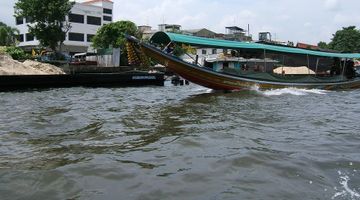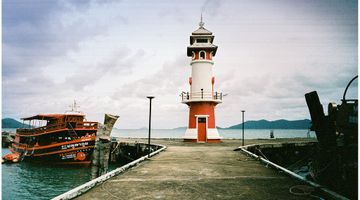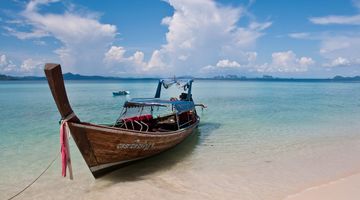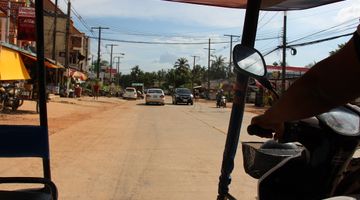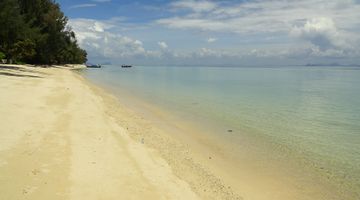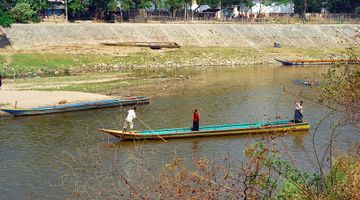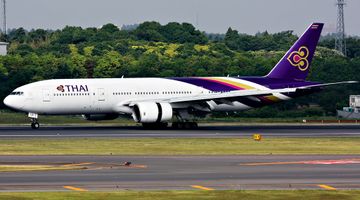Thailand Travel Insurance – To Buy or Not to Buy
For peace of mind, safety and stress-free exploration, a travel-insurance policy is a wise choice for those wanting to travel to and around Thailand. Travel-insurance policies can cover travellers in the event of theft, loss of possessions, as well as insurance in the face of any medical problems or accidents. Travel insurance can also include lost luggage and trip cancellation.
Is travel insurance necessary for Thailand?
Obviously it is up to each individual traveller to determine whether or not to get travel insurance for Thailand prior to departure. However, for those travelling around Southeast Asia, travel insurance and health insurance are strongly advised.
While the exotic culture, cheap food and tropical climate are all attractions that draw travellers to Thailand, picked pockets, malaria, a road accident and the infamous ‘Thai tummy’ food poisoning are all potential downfalls of this destination.
Where to buy your travel insurance?
Travel insurance can be purchased in your home country from any reputable travel agency, online, as well as added onto your existing medical insurance policy for the length of stay in Thailand. WorldNomads.com offers travel insurance to people from over 140 countries and it is possible to buy, extend and to claim online even after leaving home.
What should your travel insurance cover?
At the very least, coverage for medical treatments, ambulances, as well as emergency flights back home should be arranged. If needing medical assistance and attention in Thailand, travel insurance is necessary as the majority of hospitals will request your travel insurance details or proof of payment prior to treating you.
When viewing various policies, travellers should consider their own personal needs as well as the minimum, basic requirements. Any travel insurance policy in Thailand should include: comprehensive medical cover including emergency flights back to one’s home country; personal liability cover; cover for lost or stolen baggage or personal belongings (check the single item limit), unforeseen trip cancellation and access to a 24-hour emergency helpline.
Each individual will need to determine what policy is best suited to them and their specific needs. For example, an 18-year-old scuba instructor’s needs will be very different to a young family traveling around Thailand. This also means that the cost of travel insurance will vary considerably according to your preferred level of cover. Even after considering your age, health and travelling needs, basic, mid-level and comprehensive policies will obviously be charged at very different rates and it pays to shop around for the best price. If travelling with a partner or in a group, a joint policy mostly offers better value for money with travel insurance companies rather than purchasing separate policies.
It is also advisable to check the fine print of any policy and to determine beforehand what activities you will be involved in while in Thailand. Some travel insurances policies for Asian travel specifically exclude various ‘extreme’ or ‘dangerous’ activities, such as white-water rafting, elephant trekking, scuba diving or even motorcycle accidents. If you plan on participating in trekking during your stay in Thailand, or if you are coming to the sunny coastlines for diving, make sure that you are covered for any and all accidents regarding this. It is your responsibility to ensure that this cover is in place prior to take-off and for those with insufficient insurance cover, it is unwise to expect your embassy to assist you financially. Something significant to take note of for those heading to Thailand; if you plan on hiring scooters or motorcycles during your stay, ensure that your driver’s license is covered under your policy and that you are covered in the event of an accident.
What is not covered by your travel insurance?
As already established, travel insurance for Thailand is highly recommended and other than high-risk activities or road accidents, it also pays to be mindful of what your travel insurance does and does not cover. Fighting accidents or misfortunes at the hands of any martial arts; medical expenses as a result of a Thai tattoo; any accidents or casualties that occur as a result of being intoxicated or any pre-existing medical conditions are often excluded from insurance cover. Lastly, check your policy before flying to double check whether your policy pays medical staff or hospitals directly or whether you need to pay upfront and claim at a later stage. Should you be required to claim later, be mindful of keeping all medical documentation, bills and receipts.
What to do in the event of insured accident?
Things going pear-shaped should not be at the forefront of planning your trip, but it makes sense to know what to do in case of an accident or problem.
In the event of theft or loss it is essential to report the crime to the relevant authority, such as the Thai police as soon as possible and to make contact with your travel insurance provider within 24 hours. Should stolen items be unreported for longer than this, you may struggle to retain financial cover or compensation.
With Thailand’s chaotic, busy roads and frequent disregard for traffic rules it is not surprising that road accidents are all to frequent and definitely something worth taking note of when getting travel insurance. In the unfortunate event of a road accident, get someone to call the emergency services as soon as possible if anyone is injured as this is the most important thing in any emergency.
If possible get hold of your insurer personally or get someone to notify them on your behalf as soon as physically possible. Getting the required information in any road accident is also essential regardless of which driver was at fault. Names, addresses, registration numbers, make and colour of the vehicles involved and photos are all invaluable pieces of information to obtain. It’s important to have one’s policy number and insurance information at hand at all times so that making contact with your insurer is as easy and efficient as possible. While on the phone to your insurance company it’s helpful to ask the name of the person taking your call in the event that the you need to follow up at a later stage.
What is the level of healthcare in Thailand?
Fortunately, for visitors who do get sick or injured, Thailand has a very good network of private and public hospitals and healthcare is generally easily accessible, affordable and of a high standard.
While both government and international hospitals in Thailand offer very good healthcare services, government hospitals are generally far more crowded and busy; and serious injuries or sicknesses would probably be best dealt with in an international hospital especially for those with health insurance. The added benefit of international hospitals, other than the faster turn-around time, is the luxury of almost no language barrier as the majority of the doctors are able to communicate excellently in English. Surprisingly the cost to visit one of these hospitals is not all that expensive and a simple visit with one of the doctors on duty will cost around THB 650 (USD 20). This fee, however, will exclude any special tests, medical procedures, consults with specialists or any medications. A visit to the emergency room will cost roughly THB 3,500 (USD 100), once again excluding any further fees.
Concluding remarks
Travel insurance when in Thailand is something of a necessity but it is also important to for travellers to do what they can to prevent injury and illness. Take mosquito-borne diseases into account and use an insect repellent or take malaria tablets in high-risk areas; only drink bottled water; use safe modes of transport and only rent a moped or motorbike if you are a responsible and licensed driver; and, be careful and cautious when in new surroundings. Thailand is an absolute gem just waiting to be explored and appreciated and traveller insurance should be a part of a key element of travel planning and preparation.























